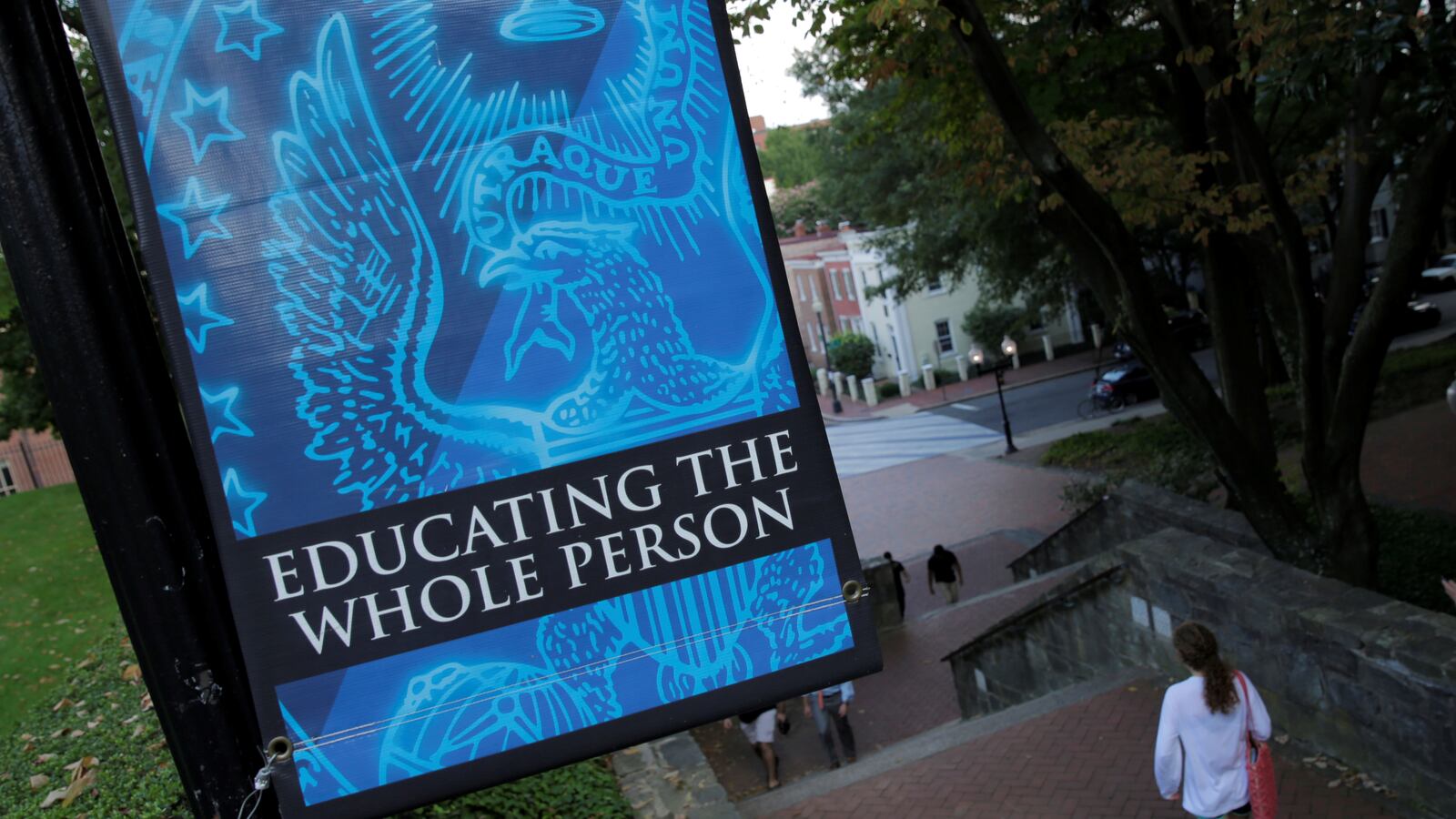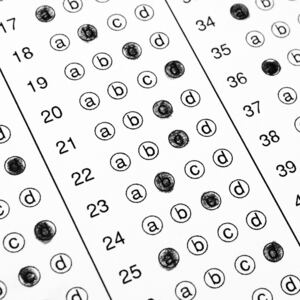A Georgetown University undergraduate whose father admitted to paying a $400,000 bribe to secure his son a spot at the elite college as part of the nationwide admissions scandal is now suing the school.
Adam Semprevivo, a 21-year-old rising senior, accused Georgetown of imposing an “arbitrary, capricious disciplinary process” that deprives him of his “due process” by refusing to let him transfer to another school with his academic credits intact. The lawsuit filed Wednesday in U.S. District Court in Washington, D.C., is also seeking an injunction to stop future academic discipline against him, including “threatened expulsion.”
Just 10 hours after the lawsuit was filed, school officials informed Semprevivo of their intention to expel him from Georgetown and rescind his original offer of admission, his lawyer, David Kenner, told The Daily Beast.
“By rescinding the original offer, Adam will lose his credits for three years at Georgetown,” Kenner said, adding that the lawsuit will now be amended to prevent such action from the university. “If they do that, Adam will have to essentially start from scratch, regardless of the time and money he spent on this school.”
Georgetown spokesperson Meghan Dubyak confirmed the school’s decision to dismiss two students on Wednesday, but added that the university “cannot comment on pending litigation.”
Semprevivo’s lawsuit is the first to arise from the college bribery scheme authorities have called the “largest college admissions scam prosecuted by the Justice Department.”
“We got an email Tuesday that Adam would not be allowed to withdraw from Georgetown until the review is finished, but they did not give us any time-frame of when that would be,” Semprevivo’s lawyer, David Kenner, told The Daily Beast on Wednesday. “All we are asking for is to just let Adam go with his credits so he does not have to start life all over again at such a young age.”
Kenner added that Wednesday’s letter must mean “someone had to stay up all night to conduct the entire investigation.”
The student’s father, Los Angeles executive Stephen Semprevivo, pleaded guilty to fraud last week after being accused of paying $400,000 in 2016 to secure his son’s spot at Georgetown as a tennis recruit.
Semprevivo, 53, is one of dozens of parents charged in March for allegedly paying California-based admissions consultant William “Rick” Singer upwards of $25 million total to rig test scores, cheat on SAT exams, and bribe college coaches, all with the goal of getting their children into elite universities. Many of the children were in the dark about the scam.
Singer, the 58-year-old mastermind of the operation, has pleaded guilty in Boston to charges including racketeering, conspiracy, and obstruction of justice. To date, over half of those accused have pleaded guilty to the scheme, including actress Felicity Huffman.
According to the lawsuit, Adam Semprevivo “was informed by Singer that the tennis coach at Georgetown, Gordon Ernst was a friend, and that Coach Ernst would provide a recommendation for Semprevivo during the admissions process.” In reality, Ernst used “one of his assigned admissions slots as if he was recruiting Semprevivo to play tennis for Georgetown,” even though the economics major had never played competitive tennis.
Singer allegedly created a fake profile for Semprevivo claiming he was a nationally-ranked competitive tennis player who had previously made the Nike Federation All Academic Athletic Team. The profile even included an essay that focused on his purported tennis skills on his high-school tennis team.
“When I walk into a room, people will normally look up and make a comment about my height— I’m 6’5"—and ask me if I play basketball,” the essay written by Singer said, according to the March indictment. “With a smile, I nod my head, but also insist that the sport I put my most energy into is tennis.”
The day after Semprevivo’s acceptance into Georgetown, which “was not conditioned on playing or participating on the tennis team,” his father donated $400,000 to Key Worldwide Foundation—a non-profit organization run by Singer, according to the complaint. Some of those funds were allegedly used to pay Ernst for his involvement.
The lawsuit accuses Georgetown of not even bothering to read his admissions application.
“If you look at Adam’s high school transcripts, his letters of recommendation, and his resume, it’s clear that his sport choice was basketball. He was even on the basketball team,” Kenner said. “So the school either didn’t read his application or didn’t care to read his application.”
It was not until February that the Georgetown student, who had paid the school more than $200,000 in tuition, became aware of his father’s actions, the lawsuit says.
By March, an online petition with more than 17,000 signatures surfaced calling for the school to revoke the degrees and admission of all students allegedly embroiled in the scheme, including Semprevivo. The next month, Semprevivo asked the school to let him “withdraw without prejudice, maintain his earned credits, and transfer to a new school,” a request that is still under review.
“Georgetown has failed to conduct disciplinary proceedings in this case that comply with any notions of fundamental fairness,” the lawsuit states.
Semprevivo is one of at least a dozen students whom Ernst allegedly designated as tennis recruits from 2012 to 2018, in exchange for more than $2.7 million from Singer, prosecutors said in the March indictment. Ernst, who left the school in 2018, has pleaded not guilty to all charges against him.









